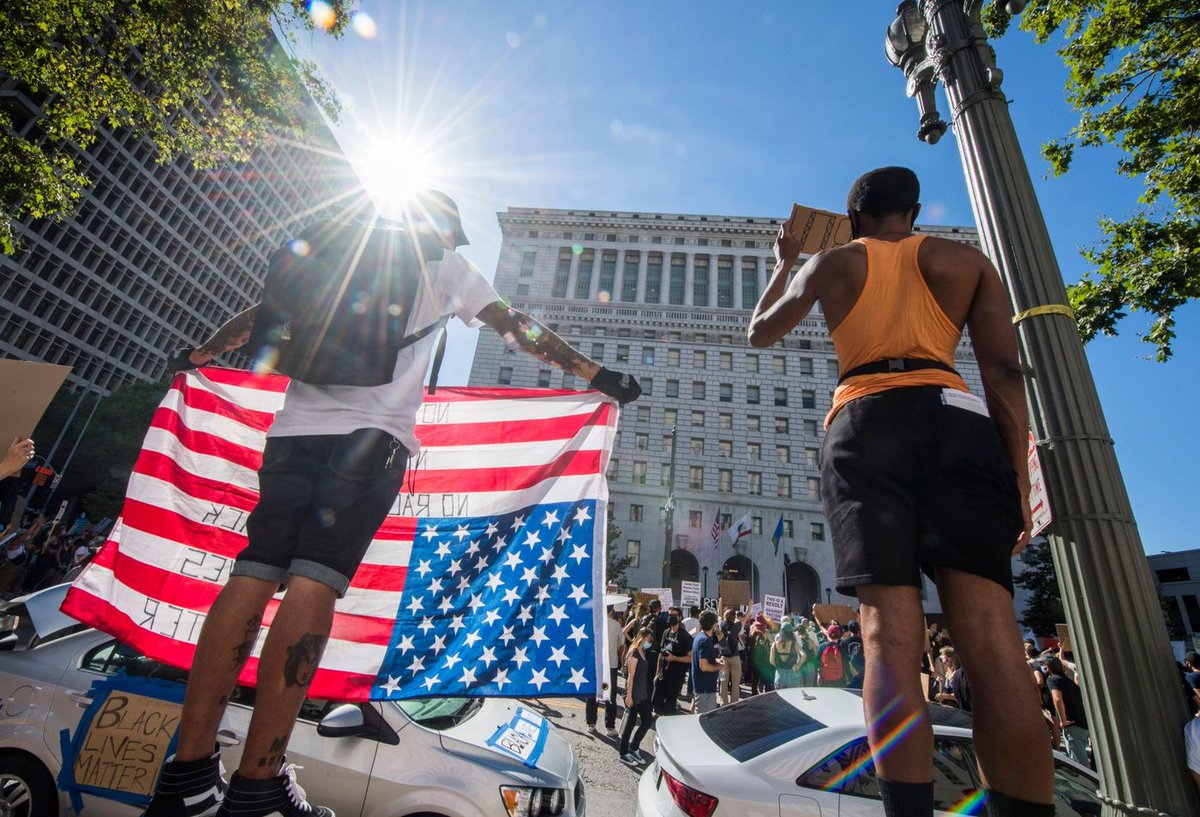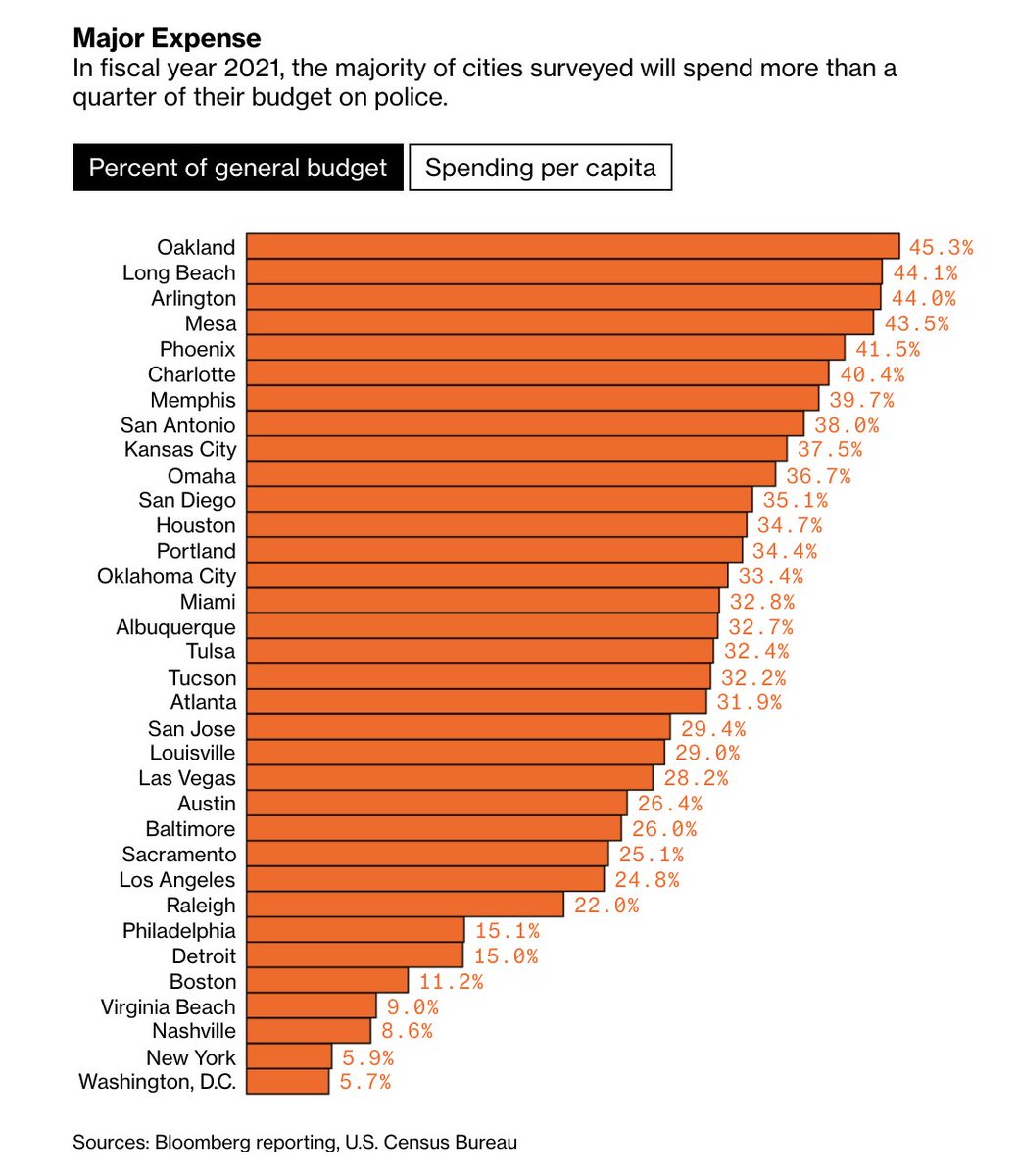
1/ Senate Majority Leader Chuck Schumer has unveiled legislation that offers billions in federal dollars for cities willing to demolish urban highways that razed or divided neighborhoods decades ago. bloom.bg/3pMf9pl
2/ The Economic Justice Act, a spending package worth over $435 billion, includes a $10 billion pilot program that would provide funds for communities to examine transit infrastructure that has divided them along racial and economic lines and potentially alter or remove them.
3/ The backstory:
In 1956, the U.S. Congress passed the Federal-Aid Highway Act, the $25 billion program that launched the Interstate Highway System. This nationwide frenzy of freeway building left behind a "horrific legacy" in scores of cities.
In 1956, the U.S. Congress passed the Federal-Aid Highway Act, the $25 billion program that launched the Interstate Highway System. This nationwide frenzy of freeway building left behind a "horrific legacy" in scores of cities.
4/ As cities embraced the benefits of high-speed thoroughfares for suburban commuters, they bulldozed swaths of downtowns, vibrant neighborhoods of color, and waterfronts to make room for the roadways.
5/ "Black and brown neighborhoods have been disproportionately divided by highway projects or left isolated by the lack of adequate transit and transportation resources," tweeted Pete Buttigieg, the newly confirmed transportation secretary.
6/ For highway teardown advocates, the legislation is promising news.
"There's a long list of things that have to be done in order to see a highway removed," says Amy Stelly, a designer involved with plans to demolish the much-maligned Claiborne Expressway in New Orleans.
"There's a long list of things that have to be done in order to see a highway removed," says Amy Stelly, a designer involved with plans to demolish the much-maligned Claiborne Expressway in New Orleans.
7/ Highway removals are hardly a quick or easy fix. The Big Dig, Boston's stab at moving its congested Central Artery underground and reuniting neighborhoods long divided by the highway, became infamous for lengthy delays and extra costs.
8/ While attempts to enshrine equity and public outreach in the law might help address those fears, historically unfair transportation and planning policies have left many barriers to participation that need to be addressed, says California-based urban planner Destiny Thomas.
9/ "This is going to require a comprehensive, multidisciplinary approach to righting a centuries-long wrong and to actively working to heal ongoing harm while also asking communities to involve themselves in the solution-finding process," says Destiny Thomas.
10/ Which roadways could be torn down?
Congress for the New Urbanism is among a host of advocacy organizations lobbying for the removal of urban highways. Their efforts include a biennial report on the freeways that activists most want to see scrapped. bloom.bg/3cAMMqr
Congress for the New Urbanism is among a host of advocacy organizations lobbying for the removal of urban highways. Their efforts include a biennial report on the freeways that activists most want to see scrapped. bloom.bg/3cAMMqr
11/ The Biden administration has identified racial equity and climate change as "overlapping and compounding crises" it wants to tackle. As many urban highways built in the 1960s are now reaching the end of their life cycles, this is a crucial moment for conversations on removal.
12/ "In the Biden-Harris administration, we will make righting these wrongs an imperative," Buttigieg suggests.
Read more about the proposed program in the report by @MaxJReyes: bloom.bg/3pMf9pl
Read more about the proposed program in the report by @MaxJReyes: bloom.bg/3pMf9pl
• • •
Missing some Tweet in this thread? You can try to
force a refresh












